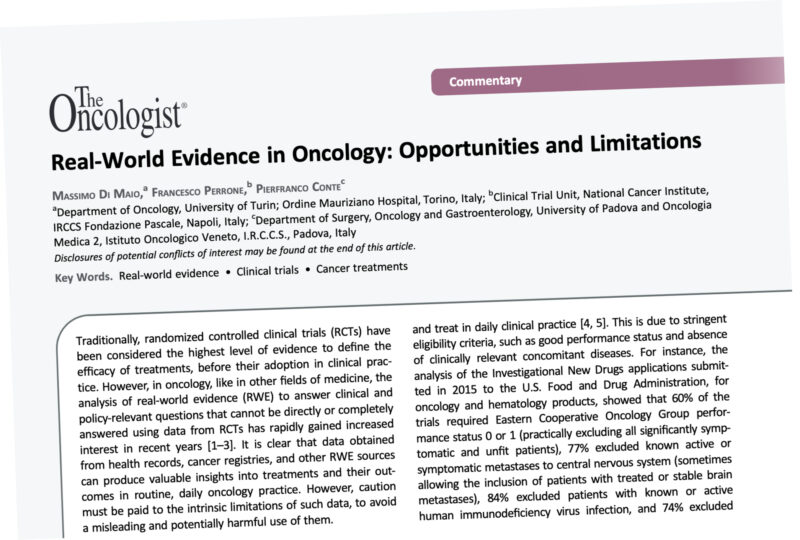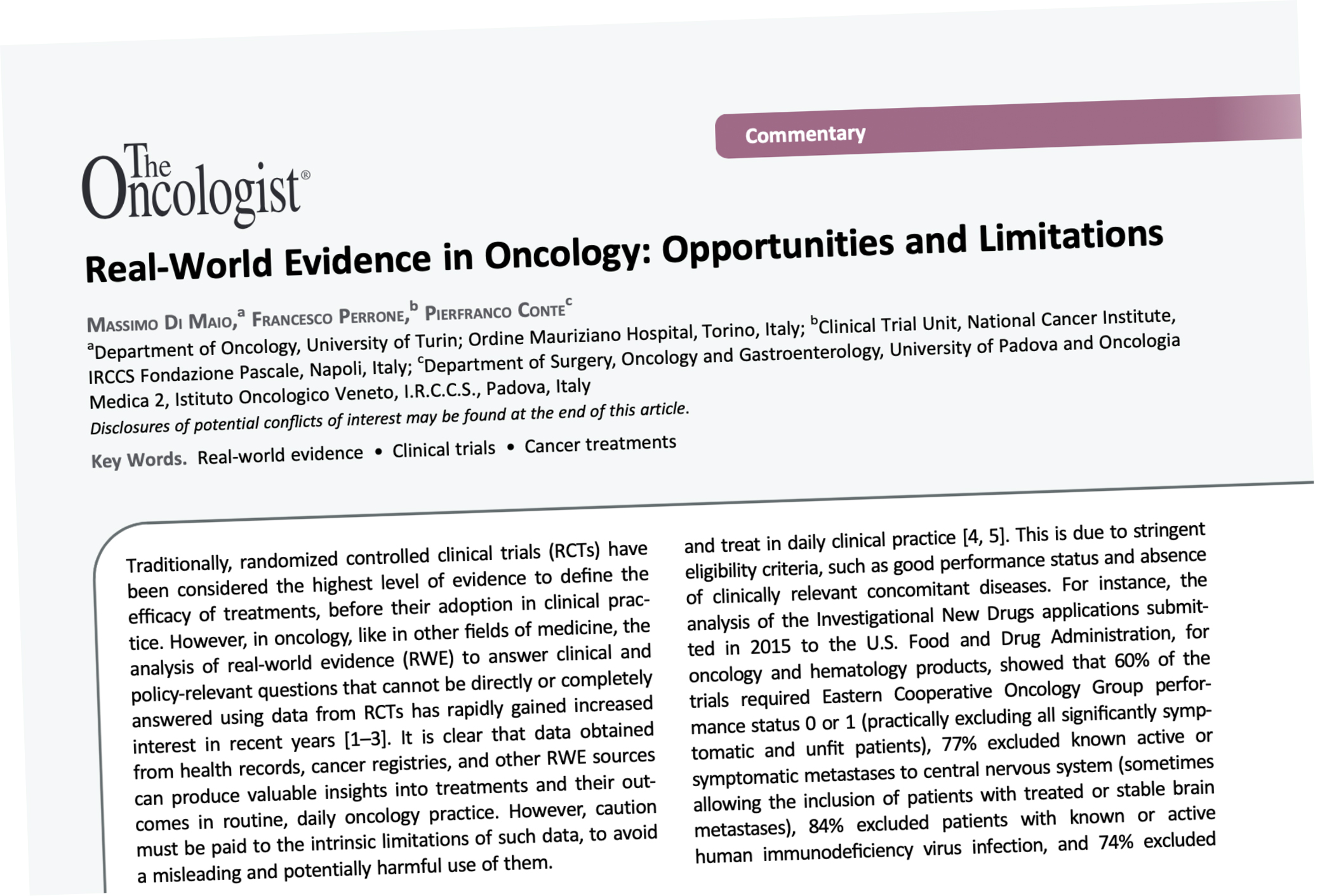Despite some weaknesses, real-world data can have a pivotal role in oncology, helping researchers and physicians to better understand the efficacy of anti-cancer treatments and how to manage the side effects.
This is the position expressed in a commentary published in The Oncologists by three Italian experts: Massimo Di Maio from University of Turin, Francesco Perrone from the National Cancer Institute in Naples and Pierfranco Conte from University of Padua.
According to the authors, the analysis of real-world evidence (such as health records and cancer registries) is gaining increasing attention as a useful way to answer questions that randomised controlled trials (RCTs) cannot fully address. “However, caution must be paid to the intrinsic limitations of such data, to avoid a misleading and potentially harmful use” authors warned.
Several applications for real-world evidence have been proposed in recent years like their use to describe the efficacy of a treatment in a “real” population, more similar to the population clinicians see in their daily practice, and not shaped by the very stringent inclusion criteria often established for RCTs. Moreover, real-world evidence can help better understand if a result can be generalized to different sub-populations, or give clues on the optimal treatment sequence, while the majority of RCTs do not address this issue.
And there’s even more than this: real-world evidence is useful to describe the reliability of complex procedures in the clinical practice, to show the effectiveness of interventions in settings where RCT can be extremely challenging, as is the case of rare molecular subgroups, and can be used to establish the safety profile of a drug, especially when it comes to long-term adverse events. “Real-world studies can also give useful information about the compliance or adherence to treatment” Di Maio and colleagues added.
Getting a glimpse of the other side of the coin, it is clear that some characteristics of real-world evidence can limit their use. “The absence of a randomized group does not allow to estimate the efficacy compared with other treatments, and quality of data could be lower compared with clinical trials” said the authors, by way of example.












